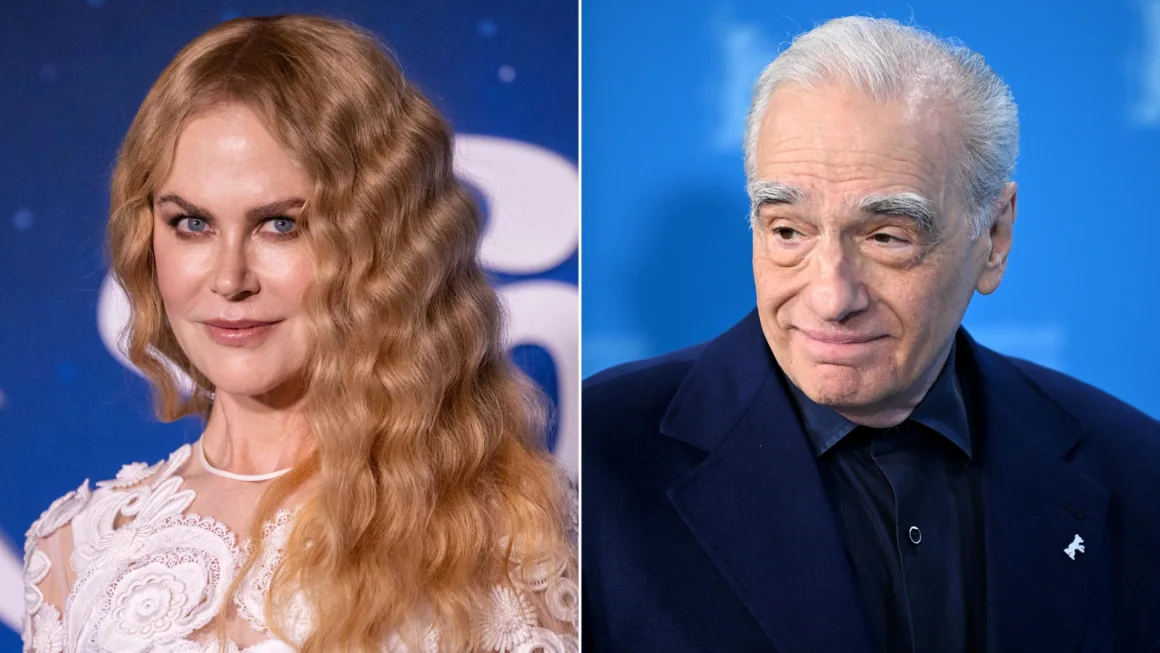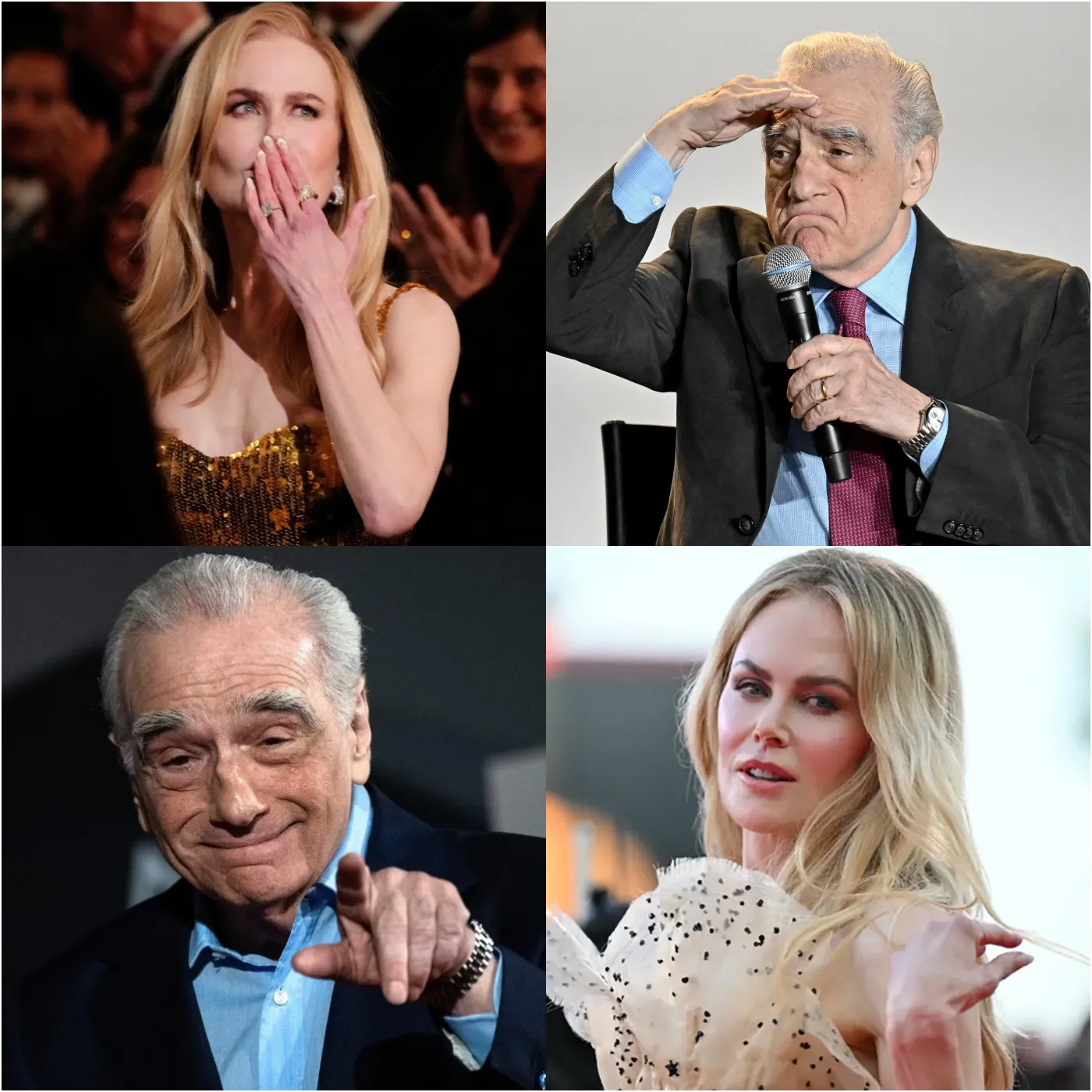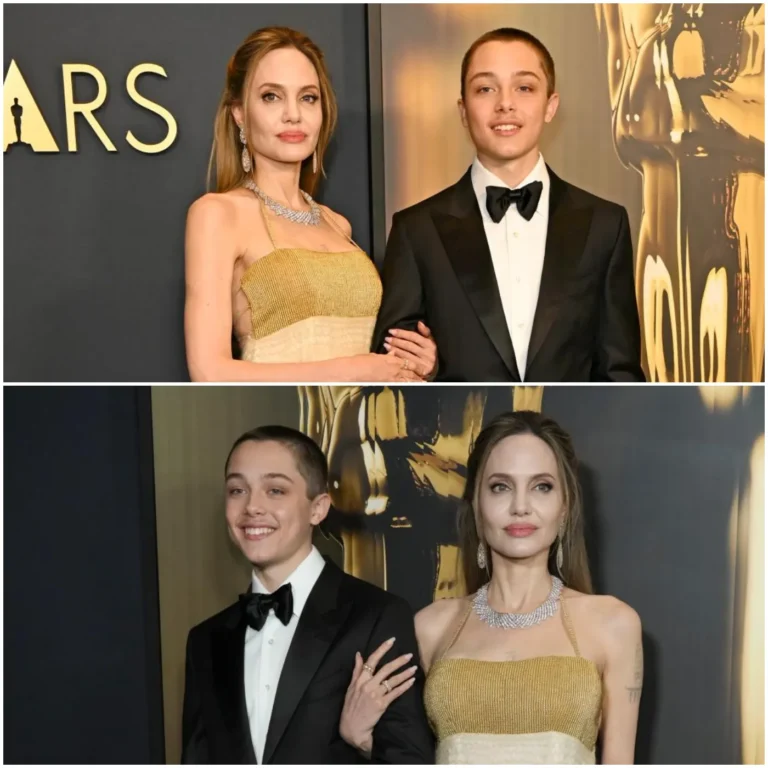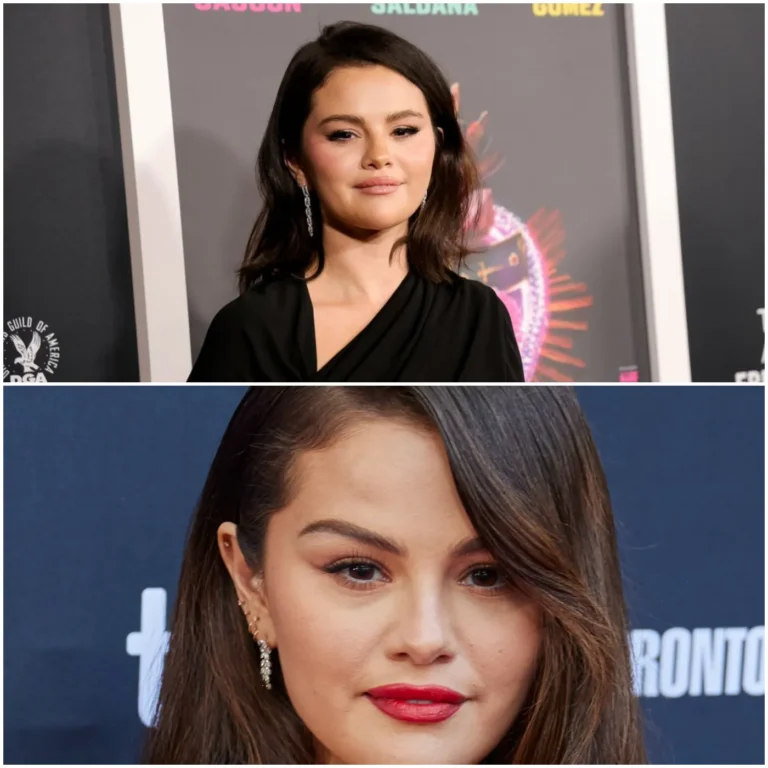
Nicole Kidman, the Oscar-winning actress celebrated for her work with visionary directors, recently made waves by addressing a perceived shortfall in Martin Scorsese’s filmography: the lack of strong, female-led stories. In an interview with Vanity Fair, Kidman was asked about her speech at the AFI Lifetime Achievement Awards, where she praised directors like Jane Campion, Sofia Coppola, and Stanley Kubrick.
When questioned about her dream collaborators, Kidman did not hesitate. “I’ve always said I want to work with [Martin] Scorsese, if he does a film with women,” she remarked, delivering a pointed critique of Scorsese’s tendency to focus on male-dominated narratives.

This statement drew attention to the famed director’s filmography. While Scorsese has created iconic movies such as Goodfellas, The Wolf of Wall Street, and The Irishman, the vast majority of his films have centered on male characters. Exceptions include Alice Doesn’t Live Here Anymore (1974), which earned Ellen Burstyn an Academy Award for Best Actress, and New York, New York (1977), starring Liza Minnelli. However, such examples remain rare in his decades-spanning career.
Kidman’s critique has sparked conversations about gender representation in Hollywood. Her statement resonates with growing calls for more female-led stories and opportunities for women both in front of and behind the camera. As an actress known for championing diverse projects with strong female perspectives, Kidman has worked with groundbreaking filmmakers like Campion and Coppola, and her remark subtly challenges industry icons like Scorsese to prioritize inclusivity.

In the same interview, Kidman also expressed her desire to collaborate with directors such as Kathryn Bigelow, Spike Jonze, Paul Thomas Anderson, and Michael Haneke, further emphasizing her commitment to seeking creative partnerships that reflect varied and innovative storytelling.
Kidman’s bold yet classy remark highlights a persistent issue in Hollywood: the need for greater representation of women in major productions. By calling attention to this imbalance, Kidman not only critiques but also inspires dialogue around inclusivity and the evolving role of women in cinema. Her advocacy for change continues to solidify her position as one of Hollywood’s most outspoken and respected voices.



